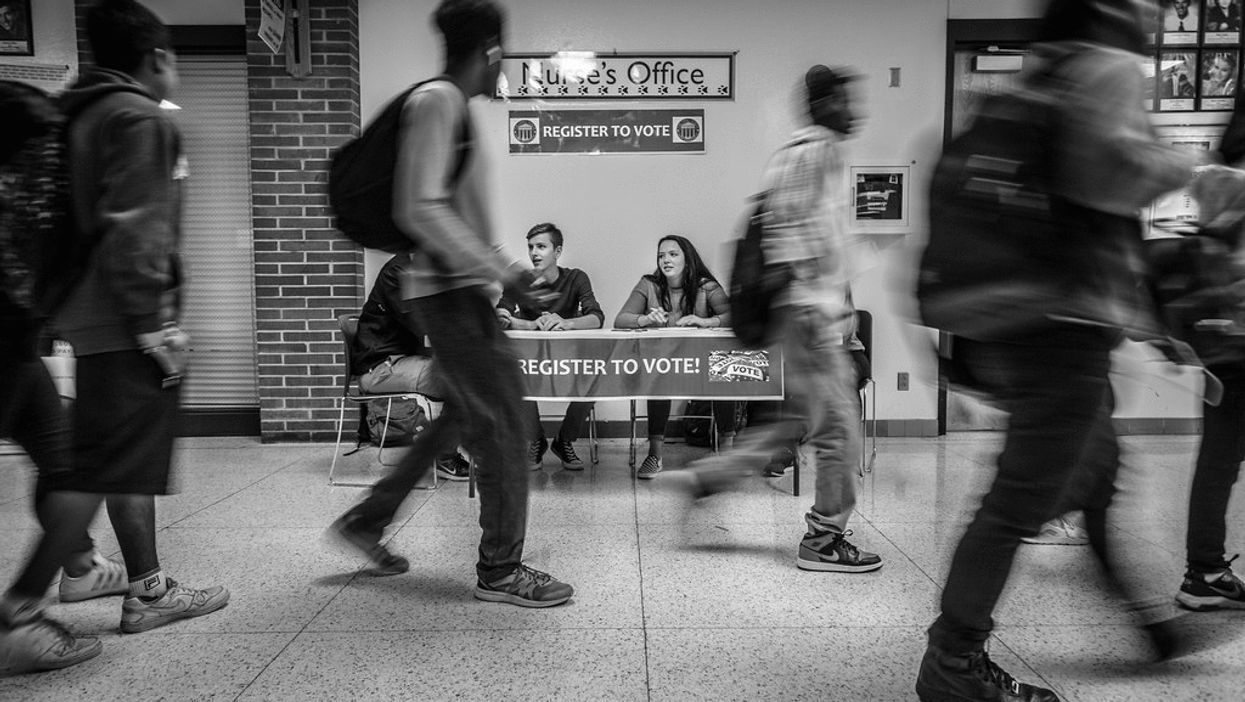With the presidential election only 406 days away, and the first Democratic nominating contest only 132 days from now, efforts to register voters and encourage election participation have been full steam ahead. Tuesday marks National Voter Registration Day, and politicians and celebrities alike took to Twitter to promote the commemorative day.
Now in its seventh year, it's a nationwide effort by civic educators and state and local officials to boost awareness of registration opportunities — and get as many thousands of new people as possible added to the rolls almost simultaneously.
Among members of Congress, there was a stark difference in who encouraged voter registration, though. Only a few House Republicans tweeted about the holiday, while dozens of House Democrats rallied followers to register to vote.
In the Senate, however, party didn't play as big of a role in determining who celebrated the holiday. Four Republican and seven Democratic members marked the occasion with a tweet.
While President Donald Trump was mum on the subject as of 3:30 p.m., his sons Don Jr. and Eric both encouraged followers to register.
Barack and Michelle Obama also chimed in. And many celebrities also promoted National Voter Registration Day, including Lin-Manuel Miranda, Zooey Deschanel, Tom Hanks and Alyssa Milano.




















Trump & Hegseth gave Mark Kelly a huge 2028 gift